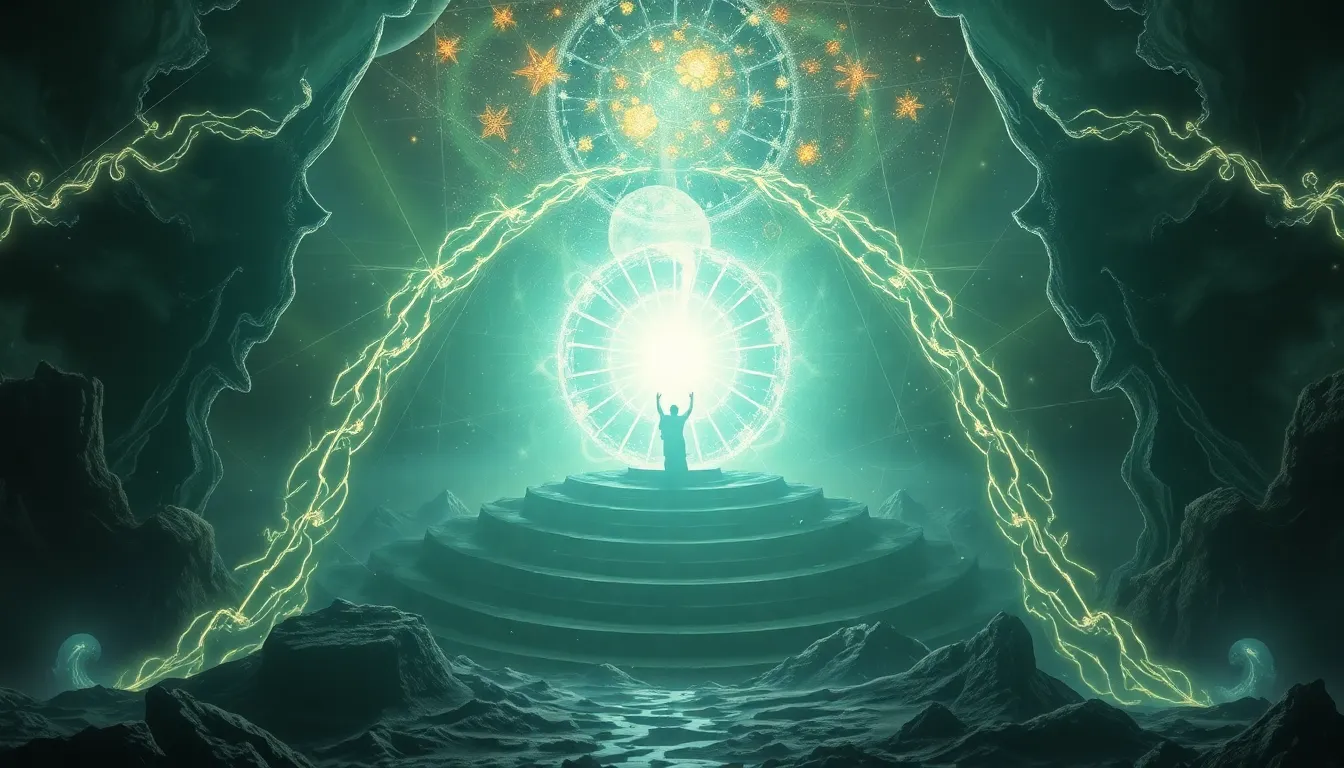When the Gods Frown: Terrifying Tales of Divine Punishment
Introduction: The Concept of Divine Punishment
Divine punishment has been a recurring theme throughout human history, manifesting in various forms across cultures and religions. It refers to the consequences imposed by deities upon mortals for their transgressions, signifying a moral order established by the gods. The role of these divine beings is often portrayed as one of enforcers of justice, serving to remind humanity of the boundaries of acceptable behavior.
This article explores terrifying tales of divine punishment, examining how these stories serve not only as cautionary tales but also as reflections of societal values and fears. From ancient myths to modern interpretations, the narratives of divine wrath reveal much about the human condition and our understanding of morality.
The Historical Context of Divine Retribution
Throughout history, ancient civilizations have constructed intricate belief systems that included the idea of divine retribution. The gods were viewed as active participants in human affairs, wielding power over fate and fortune.
- Mesopotamia: The Sumerians and Akkadians viewed their gods as capricious beings who could either bless or curse humanity. The Epic of Gilgamesh illustrates the consequences of mortal hubris, culminating in divine punishment.
- Greece: Greek mythology is rife with tales of gods punishing mortals for their hubris. Zeus, the king of the gods, famously punished Prometheus for stealing fire, showcasing the dire consequences of defiance.
- Egypt: The Egyptians believed in a pantheon of gods who maintained Ma’at, or cosmic order. Transgressions against the gods could lead to catastrophic events, such as plagues or natural disasters, seen as manifestations of divine discontent.
These examples illustrate the societal function of divine punishment, which served to enforce moral codes and maintain social order. The fear of divine retribution often kept individuals in line, fostering a collective adherence to cultural norms.
Literary Manifestations of Divine Wrath
Classic texts throughout history have depicted divine punishment, providing insights into the moral frameworks of their respective cultures. Notable examples include:
- The Iliad: This epic poem recounts the wrath of Achilles and the consequences of angering the gods, emphasizing the capricious nature of fate.
- The Bible: Stories like the Great Flood and the destruction of Sodom and Gomorrah exemplify divine retribution, illustrating the consequences of human sinfulness.
These narratives often contain moral lessons, serving as warnings against hubris, immorality, and disobedience. They reflect a deep-seated belief in the connection between human actions and divine response.
Mythical Beings and Their Punishments
Many gods and goddesses are infamous for their roles in punishing mortals. Some of the most notable include:
- Zeus: Known for his thunderbolts, Zeus punished those who challenged his authority or violated sacred laws.
- Kali: In Hindu mythology, Kali embodies the destructive aspect of the divine, punishing evildoers and restoring cosmic balance.
These mythical beings often symbolize the duality of creation and destruction, representing the complex nature of justice. Their punishments serve as cautionary tales, warning against moral failings and the consequences of defiance.
Cultural Variations in Divine Punishment
Different cultures interpret divine punishment in unique ways, shaped by their religious beliefs and societal norms. For instance:
- Hinduism: Divine punishment is often viewed in the context of karma, where actions in this life affect future reincarnations.
- Christianity: The concept of sin and eternal damnation reflects a belief in divine justice that transcends mortal life.
- Islam: In Islam, divine punishment can manifest as worldly trials or punishment in the afterlife for those who stray from the righteous path.
Indigenous cultures also have rich traditions of divine retribution, often tied to natural events or ancestral spirits. These regional tales illustrate how cultural context shapes the perception of divine justice.
Psychological Impact of Terrifying Tales
The fear of divine punishment plays a significant role in human psychology, influencing behavior and morality. Terrifying tales serve to instill a sense of accountability, prompting individuals to adhere to societal norms.
Research suggests that:
- Stories of divine punishment can reinforce moral behavior by creating a fear of consequences.
- Case studies reveal that communities with strong beliefs in divine retribution often exhibit lower crime rates.
These narratives not only shape individual behavior but also foster a collective identity centered around shared beliefs and values.
Modern Interpretations and Retellings
In contemporary literature and media, themes of divine punishment continue to resonate. Modern retellings often explore these ideas through new lenses, reflecting current societal challenges.
- Books like “American Gods” by Neil Gaiman delve into the relevance of ancient deities in today’s world, showcasing their enduring influence.
- Films such as “The Omen” and “The Ten Commandments” reinterpret divine punishment for modern audiences, emphasizing its moral implications.
This resurgence of interest in mythology speaks to humanity’s ongoing fascination with the interplay between the divine and the mortal, highlighting the relevance of these themes in contemporary society.
The Fine Line Between Justice and Cruelty
The ethical considerations surrounding divine punishment raise important debates about justice and morality. Questions arise regarding the nature of punitive actions by gods:
- Are divine punishments justified, or do they reflect cruelty?
- How do theological perspectives shape our understanding of divine justice?
Philosophical discussions often explore the implications of these narratives, challenging us to consider the balance between justice and mercy.
Lessons Learned from the Tales of Divine Wrath
The stories of divine punishment offer valuable moral and ethical takeaways, emphasizing the importance of accountability and the consequences of one’s actions. In today’s world, these tales remain relevant, serving as reminders of the potential for personal growth and societal improvement.
Key lessons include:
- The significance of humility and respect for higher powers.
- The necessity of ethical behavior and its impact on community well-being.
By reflecting on these narratives, individuals can gain insights into their own lives and the broader human experience.
Conclusion: The Enduring Legacy of Divine Punishment
The tales of divine punishment have left an indelible mark on human culture, shaping our understanding of morality, justice, and the human condition. As we navigate the complexities of modern life, the fascination with the interplay between the divine and the mortal continues to captivate our imagination.
Ultimately, these terrifying tales serve not only as warnings but also as profound reflections on the nature of existence, urging us to consider the consequences of our actions in a world where the gods still frown upon transgressions.



